Materials
Our materials
We only use high-quality materials in our products. 60% of our products are made of monomaterials. Our products include mainly first-class natural materials, such as cashmere, cotton, silk, linen and wool.
We also want to increase the use of materials that pose less of a burden to the environment, and we are constantly searching for new, more sustainable alternatives for our products.
Textile fibres
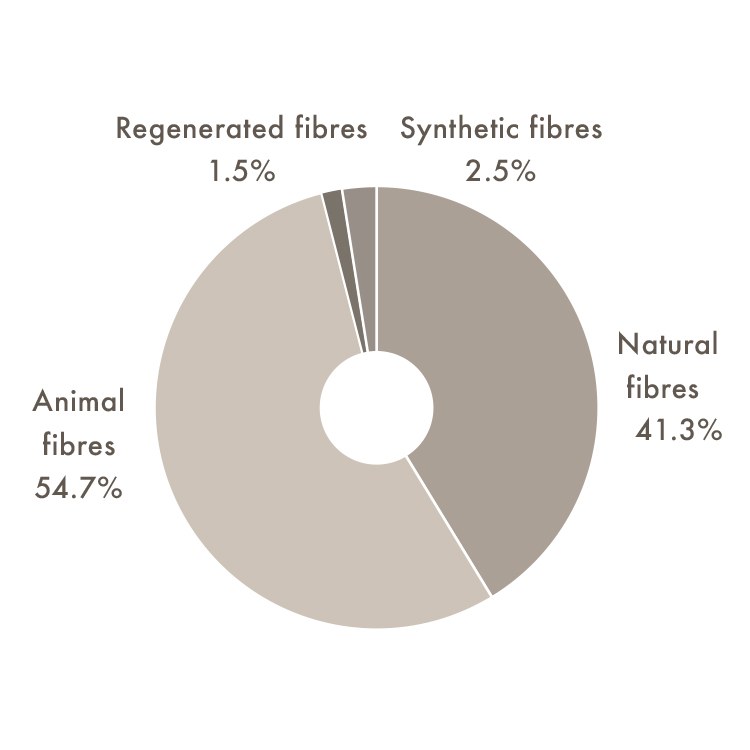

Other materials
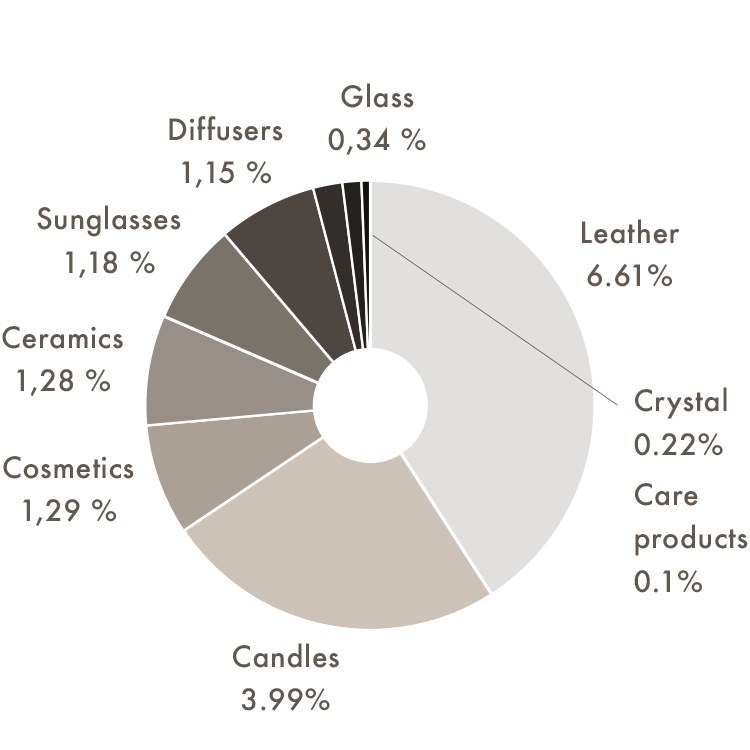

Cashmere
Cashmere accounts for 19,7%* of all our materials. Cashmere feels extremely soft on the skin thanks to its fine and long fibres.
China is the largest producer of cashmere in the world, which is why also Balmuir's cashmere products are manufactured there. Balmuir's 100% cashmere products are made from high-quality cashmere from Inner Mongolia, which is highly valued worldwide. Cashmere wool becomes finer the higher the altitude where the goats live.
In Inner Mongolia, goats grow a thick undercoat, creating a very fine cashmere quality.
High-quality cashmere fibre is fine and long; the level of fineness is measured in microns on a scale from 14 to 30. The lower the micron number, the finer and higher quality the fibre is. The cashmere fibre used in Balmuir’s products is very fine: The micron count is 15.5–16 with a fibre length of 34–35 millimetres. Long fibres do not snap as easily as short ones.
80% of our cashmere manufacturers have been third party audited. We also use undyed cashmere in our products, and our aim is to keep the proportion of undyed cashmere at 20%. Fewer chemicals and less water is needed in the manufacturing process of undyed Kashmir, making it a more environmentally friendly choice.
Our ethical guidelines require taking the welfare of animals into consideration in all activities. Our partners’ goats are combed or trimmed for cashmere once a year in the spring, when the weather starts to get warmer. The goats are normally handled by two people at a time to make the process as quick as possible for the goat. After the shepherds have collected the cashmere, it is cleaned and sorted by colour. The cashmere is then spun into yarn, ready to be made into the final products.
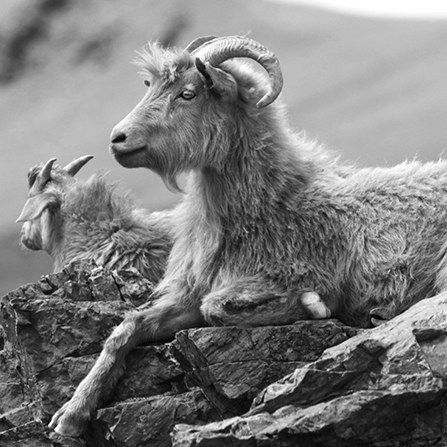

**Depending on the availability of certified materials due to increasing demand.
Cotton
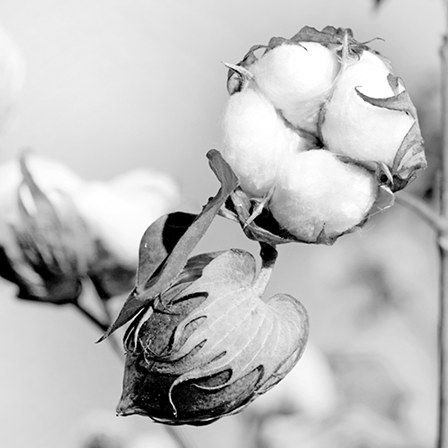

Different cotton varieties make up 17,8%* of the materials used in Balmuir's collection. We favour long staple, high quality and durable cotton varieties, such as Supima and pima cotton, which represent only 1% of the all the world’s cotton. Standardised Supima cotton is grown in the USA and it represents a particularly long staple and luxurious cotton variety. Our cotton household textiles are made in Portugal. We are planning to increase the share of Supima cotton in our household and fashion collections in the future.
For our bed linens, we use cotton with a high thread count, guaranteeing durability and a luxurious sensation. Most of our bed linens are made from cotton fabric with a thread count of at least 300TC. A high TC count means that the fabric is densely woven and of a high quality.
Cotton is a sustainable natural material. The long fibres of high-quality cotton last a long time and cotton can also be recycled as raw material for new products. From the point of view of sustainability, the main challenges related to cotton production are the need for large quantities of water and land, the use of pesticides and bad traceability of the origin of products. At Balmuir, we actively investigate the origins of the cotton we use, and currently the cotton we use is mainly sourced from India and Pakistan. Our products do not contain Chinese cotton. Balmuir does not accept any fibres, materials or products manufactured in the Uyghur region of China. 23% of the cotton products we produced was certified organic cotton.
Our cotton home textiles are sewn in Portugal. The fashion items made of cotton are sewn in Estonia.
Silk
Silk makes up 12,9%* of our materials. Silk is a valuable material, known for its luxurious glow and pleasant feel on the skin. Light silk garments drape beautifully over the body.
Silk is a versatile material, as it feels cool on the skin in warm weather and warm in cold weather.
Silk fibres are light but resistant. We use silk with a particularly high momme count, 22, in our household silk products and some of our BMuir silk garments. The momme scale relates to the density of silk fibres; when the figure exceeds 19, the silk is classified as high quality. When a silk product has a high momme count, it can withstand maintenance and washing well without wearing out. If properly maintained, products will remain in good shape for a long time.
The silk used in Balmuir’s products is made in China from the cocoons of mulberry silk moths using traditional silk making methods. Mulberry silk moths lay eggs from which silkworms hatch. The worms use the leaves of a mulberry tree for sustenance. After reaching its full size, a silkworm will form a cocoon that can contain up to 1 600 meters of silk fibre. Inside the cocoon, the worm will evolve into a moth that hatches and lives for a short period of time to reproduce. As a part of the silk manufacturing process, healthy cocoons are collected to hatch moths that will mate and lay eggs. The eggs are cleaned for safe production and quality inspection purposes, packed and sent to silk farmers. The farmers will harvest cocoons from which the worm is removed for the final processing of silk fibre. Silk fibre is the only natural continuous filament fibre. Balmuir’s silk products are manufactured in China, Italy, and Nepal. Our home decor silk products and over 60% of our silk scarves have an Öko-Tex certificate that guarantees that no harmful chemicals are used in the product**.
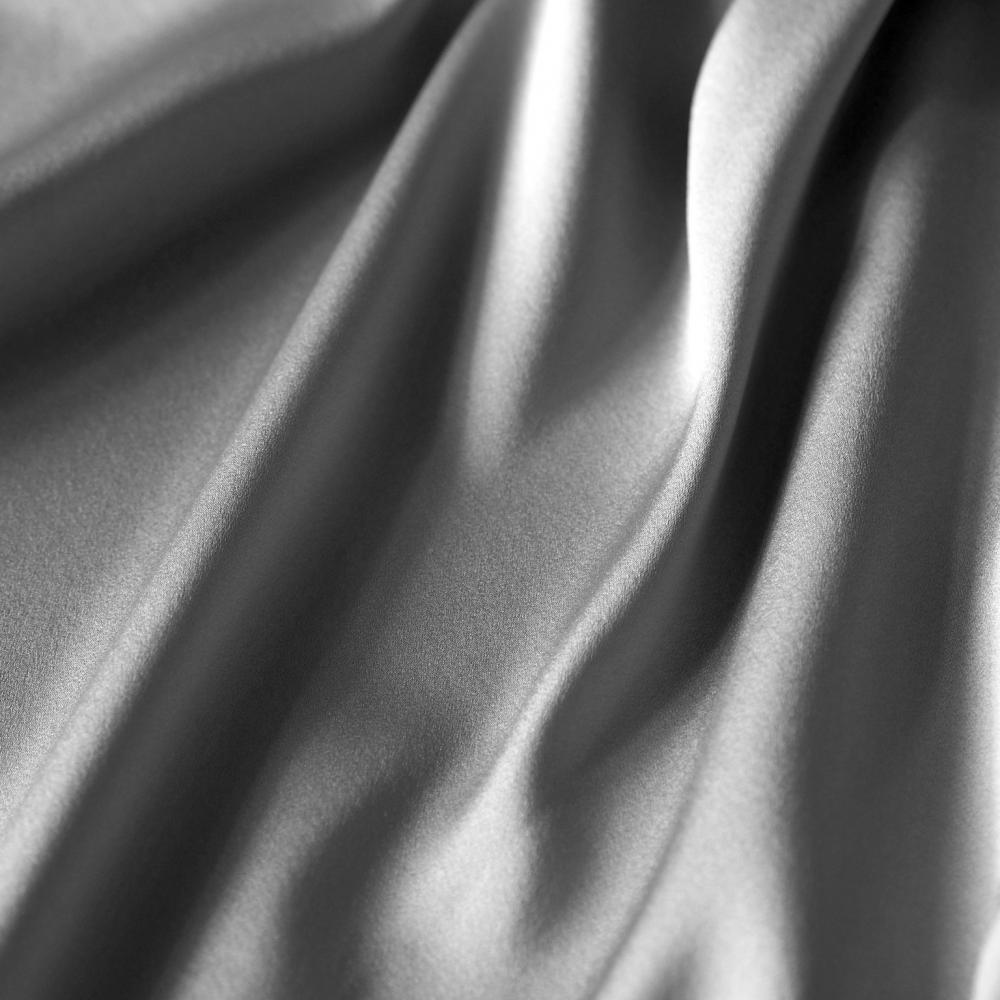

**Dependent on the availability of certified materials due to high demand.
Leather
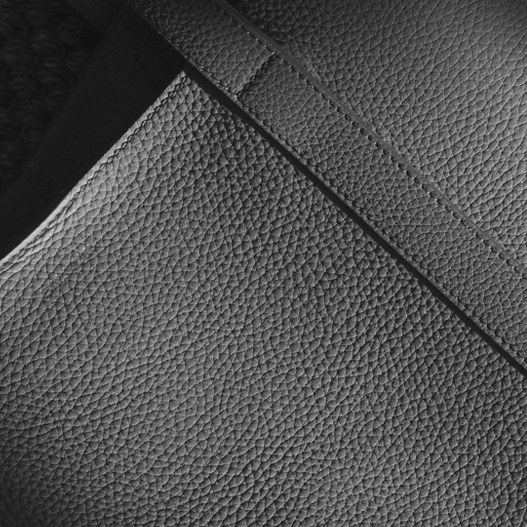

Leather is a highly resistant material with a beautifully vivid texture, We use leather in our wallets, bags, clothes and gloves. Leather accounts for 5,2% of all the materials we use.
Balmuir wallets and bags are made from high-quality cowhide from Turkey, while our sheep’s nappa leather clothing comes from Norway and South Africa. Our hand-made leather shoes are made in Spain.
All the leather we use is a byproduct of the meat industry.
Our largest leather suppliers have passed a third-party audit by the Leather Working Group (LWG). The Turkish manufacturer has been awarded the Leather Working Group's (LWG) highest Gold certificate based on environmental sustainability and operational safety. The certificate is recognised and valued by the world's leading luxury product manufacturers and other actors in the industry.
Our bags do not contain the harmful hexavalent chromium.
Kid mohair
Kid mohair accounts for 8,7%* of all the materials we use. Warm and gentle on the skin, kid mohair wool is a rare goat virgin wool, harvested from approximately one-year-old angora goats. It is necessary to sheer the virgin wool of angora goats so that they can grow adult wool. Kid mohair wool is rare, because goats grow virgin wool only once in their lifetime. Kid mohair is softer than the mohair of adult goats.
Our products are carefully crafted in South Africa, where our partner employs local marginalised women for the task.
The kid mohair yarn we use comes from an RMS-certified supplier in South Africa. The Responsible Mohair Standard (RMS) monitors animal welfare and mohair quality. Mohair South Africa is an organisation that monitors the industry in South Africa and ensures animal welfare in accordance with the regulations in place**.
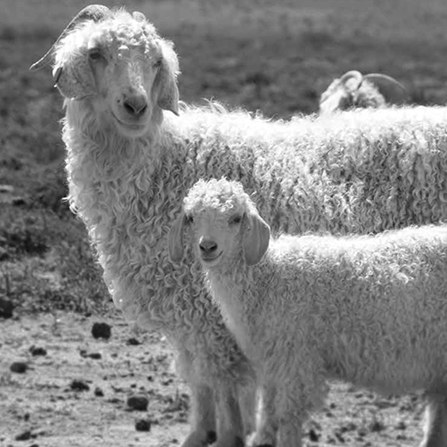

**The regulations set detailed standards for animals’ living conditions, food, care, shearing, medication, transport, etc.
Linen
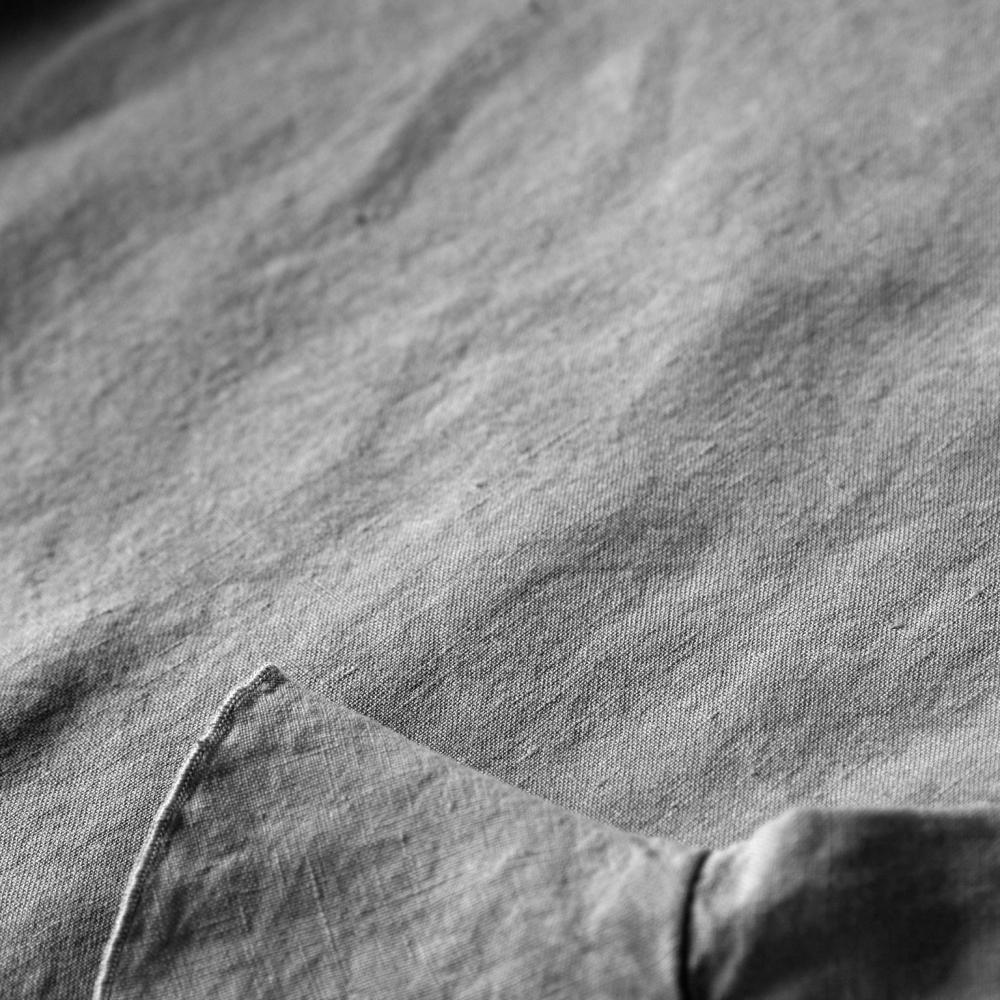

The share of linen in the materials we use is about 8,3%*. Linen is a very pleasant material that feels cool on the skin in hot weather and pleasantly warm in cold weather. Linen contains durable and strong fibres that soften with use. We use a special finishing treatment to soften the surface of our linen products.
Balmuir's linen towels, bed linen, bathrobes, kitchen textiles and garments are made in Lithuania.
Linen is an ecological material from the point of view of sustainability, as its environmental effects are relatively small. Flax plants are highly resistant and they do not need much water or fertile soil. The raw material used in our linen products that are manufactured in Lithuania comes from France and Belgium, and it is Oeko-Tex-certified.
Balmuir's linen home textiles are made in Lithuania and BMuir linen clothes are sewn in Estonia.
Wool
Balmuir's wool products are composed of high-quality wool fibres, such as virgin wool. We use wool in our scarves and household textiles. Wool accounts for about 5%* of all the materials we use.
The wool we use in our scarves and garments comes from South Africa, New Zealand and Australia.
We also aim to increase the proportion of wool that complies with the Responsible Wool Standard (RWS). RWS guarantees that the entire production process of the material (animal and environmental welfare, yarn production, etc.) is ethical and that it has been audited by a third party. The market situation defines, how much of this is possible.
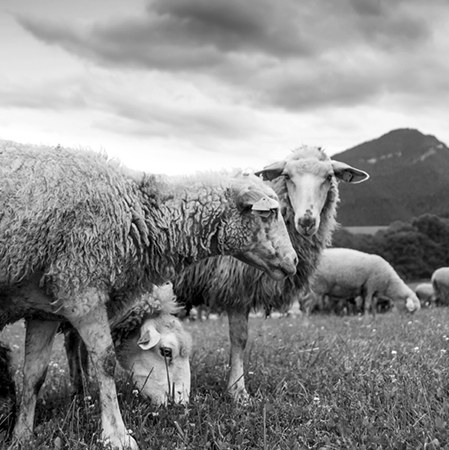

**Sheep have not undergone mulesing
Alpaca
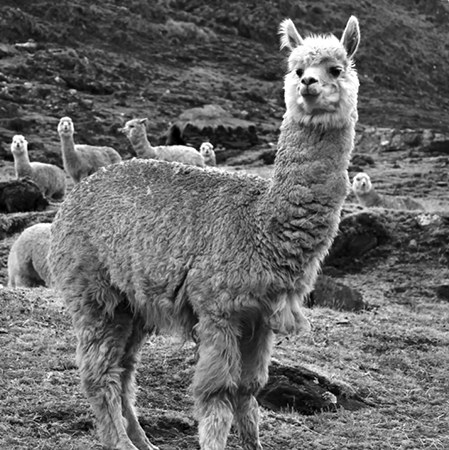

Alpaca wool and baby alpaca make up a total of 3%* of the materials in our collection. Baby alpaca refers to a particularly fine quality of alpaca wool, not the age of the alpaca. Alpaca wool is an extremely light material that provides good thermal insulation. Alpaca wool produces significantly less lint than other wool fibres and it is also suitable for people with wool allergies.
All our alpaca wool comes from Peru, which is also where our alpaca household textiles are made. The earthy shades of brown, grey and white alpaca wool are undyed.
Our alpaca blend knitwear, on the other hand, is made in Inner Mongolia, China. But the alpaca wool used in the knitwear is also harvested from alpacas in Peru.
Down
Balmuir introduces a sustainable New York down coat collection. The shell and lining of the coats are made of recycled polyamid, while the padding comprises sustainably sourced 90% down and 10% feather (RDS), sealed with a special four layer technique to ensure longevity and premium quality.
*Percentages represent procurement volumes in 2023.
